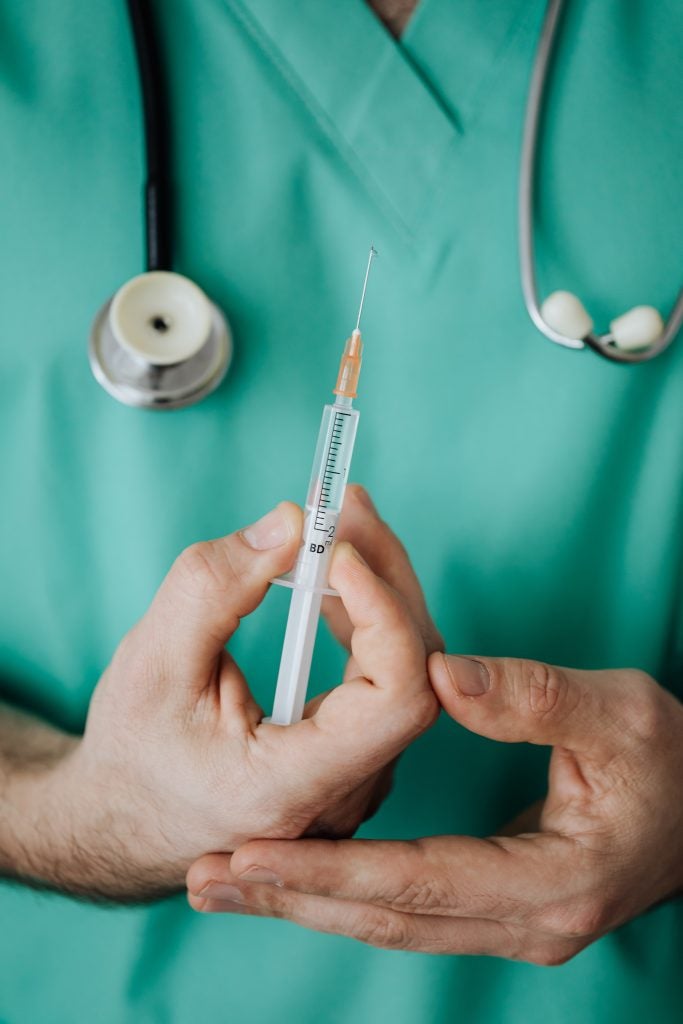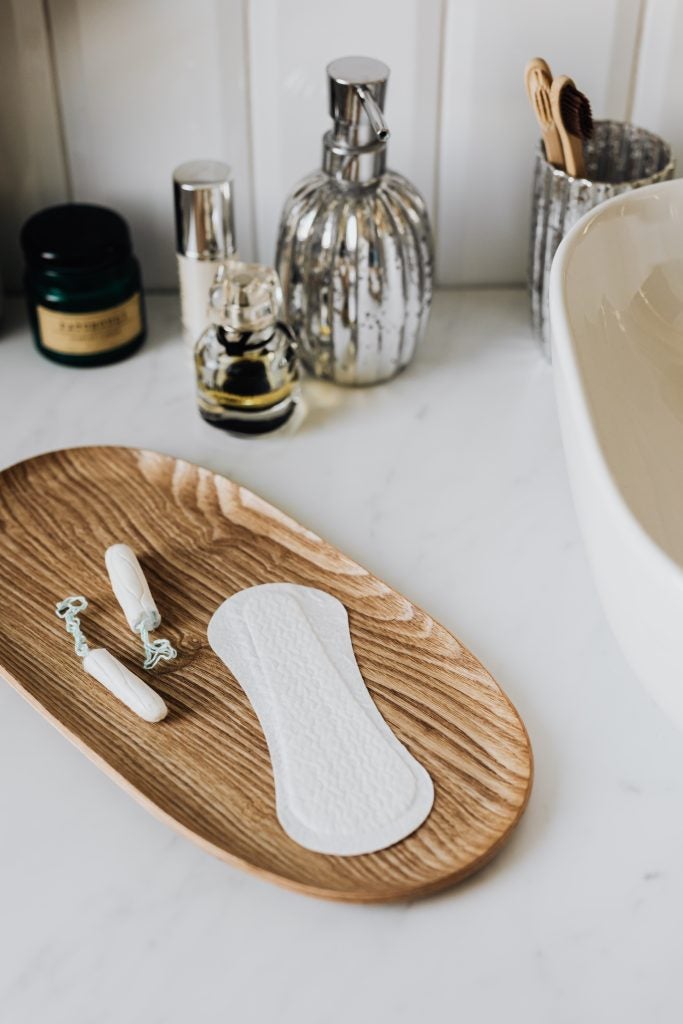
The birth control shot, most commonly known as Depo-Provera® or DMPA, is an injection of the progestin hormone.1 This hormone is injected into the arm or buttocks every three months in order to prevent ovulation and thicken cervical mucus, making it more difficult for sperm to pass through the cervix.1 Since the birth control shot does not protect against sexually transmitted infections (STIs), the birth control shot should be used in conjunction with a male or female condom. The birth control shot costs between $35 and $100 per injection and is available by prescription only.
Table of Contents
How Does the Birth Control Shot Work?
The shot prevents ovulation so that pregnancy cannot occur. It also makes the mucus in the cervix thicker so that sperm cannot pass through. When eggs remain in the ovaries and sperm cannot enter the cervix, pregnancy cannot happen.
How Effective Is the Birth Control Shot?
The birth control shot is more than 99% effective in preventing pregnancy when used correctly.1 It provides immediate protection against pregnancy if it is injected during the following periods:
- Within the first seven days after the start of the menstrual period.
- Within five days after a miscarriage or abortion.
- Within three weeks after giving birth.
Follow-up shots can then be received as early as 10 weeks when the last shot was received, or as late as 15 weeks after the last shot.1 If the follow-up shot is taken more than 15 weeks late, there is a high risk for pregnancy and a backup form of birth control (i.e. a condom or diaphragm) should be used for the first week following the shot.1
What Are the Advantages of the Birth Control Shot?

There are several advantages to the birth control shot. Unlike the pill, which is taken on a daily basis, the shot is injected only once every 12 weeks. Also, there is no way to misuse this form of birth control as long as users attend their doctor appointments on time. Using the birth control shot allows females to take control and responsibility over their pregnancy protection, plus there is no fear of failure (like a condom breaking).1 For most females, menstrual periods will become lighter and less frequent with fewer menstrual cramps while using the birth control shot.2 In some cases, females may not have their periods at all while on the shot.2 The shot may also help to maintain sexual spontaneity because it does not require application prior to intercourse.
What Are the Disadvantages of the Birth Control Shot?
While there are many benefits to using the birth control shot, there are also some drawbacks. The shot does not provide protection against STIs. The shot may also cause irregular menstrual bleeding, especially within the first year of use. Though many females will begin having shorter and lighter periods, some may experience longer and heavier periods and increased spotting between periods. Less common side effects may include a change in appetite or weight gain, depression, headaches, nausea, or sore breasts.1 There is no way to stop side effects once injected, so they may continue for up to three months until the shot wears off.
Because the shot is injected, some people may also experience physical pain from the needle. The shot may also cause temporary bone thinning if it is used continuously for more than two years.2 To provide protection against this side effect, females should exercise regularly and get enough calcium and Vitamin D through their diet or from supplements. Bone growth typically begins again once the shot is stopped.2
Where Can I Get the Birth Control Shot?
The birth control shot must be prescribed by a doctor or nurse practitioner and the shot itself is usually administered by a nurse.3 Depo-subQ Provera 104 is a name brand form of the birth control shot that can be self-administered at home once a physician has demonstrated proper usage.3
Can I Become Pregnant after I Stop Receiving the Birth Control Shot?

The birth control shot is not immediately reversible, but most females can become pregnant 12 to 14 weeks after receiving their last shot.3 In some cases, females may take as long as one to two years to conceive once they stop receiving the shot.3
Concluding Remarks
The birth control shot has numerous benefits and is 99% effective in preventing pregnancy when used correctly. It is recommended that the shot be used in conjunction with a condom since the shot itself does not protect against STIs. The shot is administered by a healthcare professional and provides contraception for 12 weeks. Consult with your doctor if you are considering using this type of contraceptive.
For more on the birth control shot, watch the video below!
References
- Planned Parenthood. “Depo-Provera | Birth Control Shot | Birth Control Injection.” Planned Parenthood. Web.
- Office of Population Affairs. “Birth Control Shot.”, US Department of Health and Human Services. Web.
- Cleveland Clinic. “Depo-Provera Birth Control Shot Information.” Cleveland Clinic. Web.
Last Updated: 17 October 2018.
